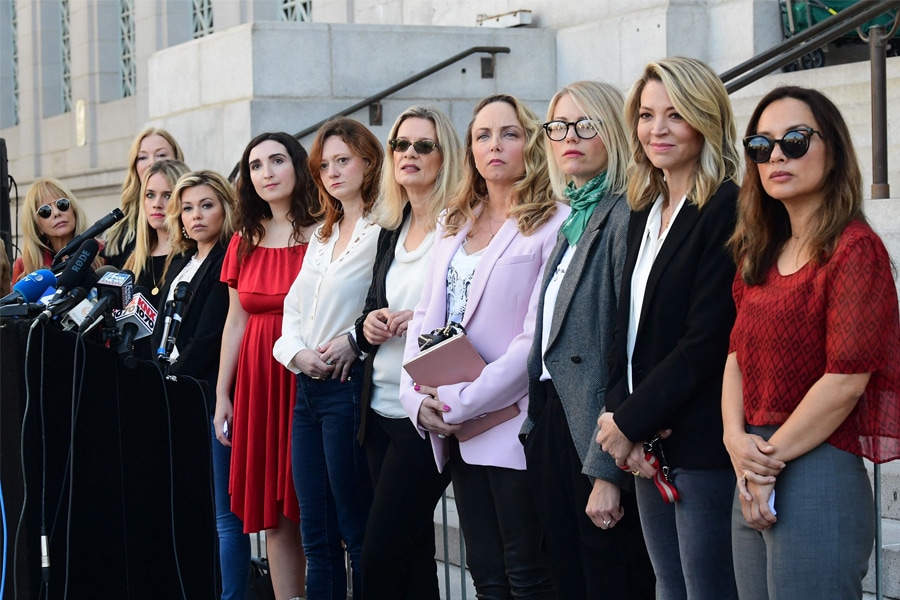
A news article, a hashtag and a viral tweet: the birth of #MeToo
In the wake of the Harvey Weinstein revelations, the #MeToo hashtag spread around the world like wildfire: #quellavoltache (this time) in Italy, #EnaZeda in Tunisia and #AnaKaman in Egypt (me too)
 Hollywood actresses and others in a group of "Silence Breakers" who have fought for justice by speaking out about Harvey Weinstein’s sexual misconduct.
Image:Frederic J. Brown / AFP
Hollywood actresses and others in a group of "Silence Breakers" who have fought for justice by speaking out about Harvey Weinstein’s sexual misconduct.
Image:Frederic J. Brown / AFP
On October 5, 2017, The New York Times published a bombshell investigation into allegations of sexual harassment against one of the giants of Hollywood, Harvey Weinstein, who had until then proven untouchable despite rumors of misconduct.
The article proved to be a watershed moment, triggering what rapidly became known as the #MeToo movement.
Times journalists Jodi Kantor and Megan Twohey wrote about a subject wildly talked about inside Hollywood circles, but never broached in public: that the legendary producer behind "Shakespeare in Love" and "Pulp Fiction" had promised to help actresses' careers in return for sexual favors, had attempted to massage several of them in hotel rooms and forced them to watch him naked, then used his power to silence them.
The two journalists had been working on the article for months, using all their patience and ingenuity to convince the actresses to speak out.
So damning were the claims that it took just days for Harvey Weinstein to be fired from the company that bore his name. He tried to "sincerely" apologize, pleading that he had grown up in the 1960s and 70s, "when all the rules about behavior and workplaces were different."







